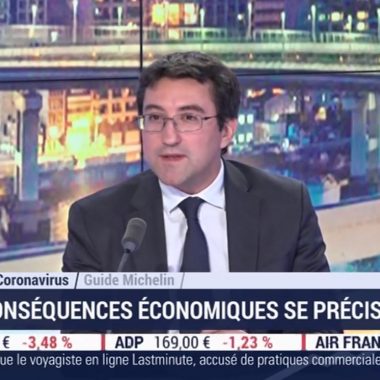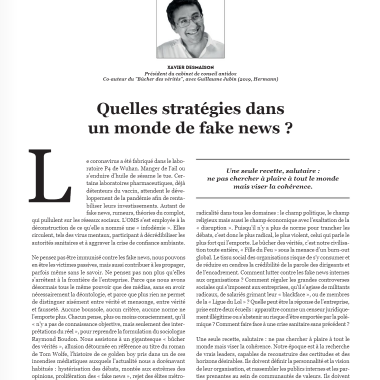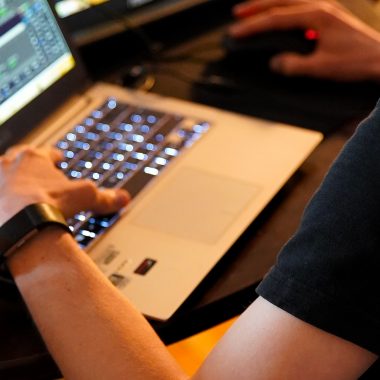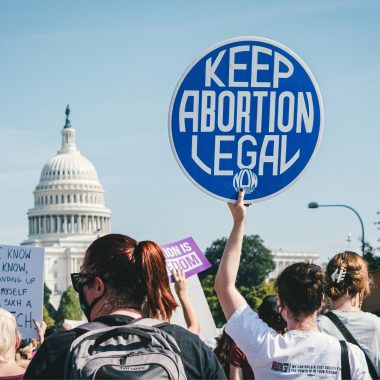In the midst of Sustainable Development Week, the question of the role of content creators as new players in the ecological transition is increasingly being raised. At a time when social networks are playing an increasingly important role in our lives, shaping our opinions and behaviour, content creators are becoming major figures of influence in the ecological transition landscape. Adored by their followers, they are also a real way for companies to easily develop their brand on digital.
How do they carry the CSR strategy of brands?
The success of social networks has led to the emergence of ‘influencer marketing’ at the heart of corporate communications strategies. Content creators enable them to convey their messages to a loyal community, while bypassing consumers’ distrust of traditional advertising.
True opinion leaders, they enable the brand to promote its services or products and enhance its image and values with a targeted community that is sensitive to the messages transmitted by the person they follow.
86% of French people expect brands to provide solutions to environmental and societal issues(source: Kantar Sustainability Sector Index study)and 84% of them need proof to believe in their commitments(source: GreenFlex-ADEME barometer). Some companies take advantage of their reputation to convey ethical messages that address current social and environmental issues. This strategy enables them to strengthen their brand image and reputation with the general public by associating them with positive, sustainable values. It also encourages the adoption of more responsible practices within the company itself.
To what extent do they really influence our consumption habits?
For 82% of consumers, the opinions expressed on social networks, particularly by friends and family and content creators, are decisive in their purchasing decisions. 49% of them also rely on their recommendations when placing an order(source: Digital Marketing Institute). The buzz about El Mordjene spread on Tiktok is a good example. The creators sold it as the best on the market and it has been attracting a lot of interest ever since. Even if it ended up leaving a bad taste in the mouths of grocers, who are no longer allowed to sell it in Europe following a crackdown by the European Commission.
So their messages do have an impact on the way we consume.
In recent years, however, the trend has been reversed, giving way to thousands of Instagram, TikTok and YouTube accounts dedicated to ecology. Collective awareness is growing and movements within the digital sphere are becoming increasingly responsible. In 2019, EnjoyPhoenix was the first to give up sending excessive parcels containing products she never had time to test.
In line with this, several instagram accounts are also promoting a more responsible lifestyle (@daphneblt – 76.5k followers), zero waste (@maison_minimaliste_Zerodechet – 67.4k followers), second-hand goods and healthier eating through content sharing their daily lives, tips and convictions with their committed community.
On the ‘tourism’ front, unlike accounts that organise competitions to win trips to the other side of the world, some content creators such as @Brunomaltor (625k followers) promote travel that respects ethical and environmental values. Sustainable tourism’ hashtags have even appeared on social networks to highlight more environmentally-friendly alternatives.
In contrast to this positive trend, some can get lost in their partnerships with companies, which have become a major source of revenue. These partnerships sometimes lead to unintentional greenwashing, because the products or services being promoted are not as environmentally friendly as they appear.
This kind of practice has given rise to a great deal of reticence on the part of the general public, and associations have been set up to defend consumers’ rights. This is the case of AVI (Aide aux Victimes d’Influenceurs), a group set up in 2022 to act as a whistleblower to monitor the commercial practices of content creators. It denounces their actions that do not comply with the law governing commercial influence, enacted last June. Others focus more on the environment, such as ‘Paye ton influence’, which was set up in 2021 to raise awareness in the influence world of the ecological impact of its actions.
These groups respond to the needs of a population that is increasingly committed to sustainable development and does not hesitate to alert or openly criticise creators on social networks. This is what happened to Inoxtag, who disconnected from the networks only to reappear after a spiritual and ardent adventure at the top of Mount Everest. Part of her community strongly criticised her for not talking more about the climate change and pollution that are transforming the natural site, which is visited by thousands of people every year.
What are their limits and what solutions for the future of consumers?
Every move they make and every piece of language they use is scrutinised and criticised, so it’s essential for content creators to remain vigilant and to learn about the companies they work with, while continuing to promote a vision and commitment to the environment that is fair, honest and applicable to their community.
While they have an undeniable impact and can have a positive influence, their power should not be overestimated. Consumption habits are complex and depend on other factors, such as education and the socio-economic context of each individual. Public policy, schools and the media have a major role to play in raising awareness and developing more responsible and committed behaviour.
Synergies between stakeholders and collective work are essential if we are to build an environmental culture in each and every one of us, and build a healthier, fairer future.
By Kelly Leotardi









